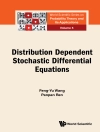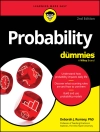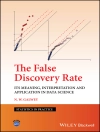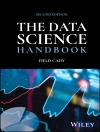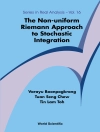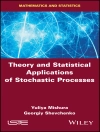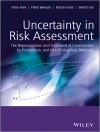This book gives an overview of singular spectrum analysis (SSA). SSA is a technique of time series analysis and forecasting combining elements of classical time series analysis, multivariate statistics, multivariate geometry, dynamical systems and signal processing. SSA is multi-purpose and naturally combines both model-free and parametric techniques, which makes it a very special and attractive methodology for solving a wide range of problems arising in diverse areas. Rapidly increasing number of novel applications of SSA is a consequence of the new fundamental research on SSA and the recent progress in computing and software engineering which made it possible to use SSA for very complicated tasks that were unthinkable twenty years ago. In this book, the methodology of SSA is concisely but at the same time comprehensively explained by two prominent statisticians with huge experience in SSA. The book offers a valuable resource for a very wide readership, including professional statisticians, specialists in signal and image processing, as well as specialists in numerous applied disciplines interested in using statistical methods for time series analysis, forecasting, signal and image processing. The second edition of the book contains many updates and some new material including a thorough discussion on the place of SSA among other methods and new sections on multivariate and multidimensional extensions of SSA.
Innehållsförteckning
1 Introduction.- 1.1 Overview of SSA methodology and the structure of the book.- 1.2 SSA and other techniques.- 1.3 Computer implementation of SSA.- 1.4 Historical and bibliographical remarks.- 1.5 Common symbols and acronyms.- 2 Basic SSA – 2.1 The main algorithm.- 2.2 Potential of Basic SSA.- 2.3 Models of time series and SSA objectives.- 2.4 Choice of parameters in Basic SSA.- 2.5 Some variations of Basic SSA.- 2.6 Multidimensional and multivariate extensions of SSA.- 3 SSA for forecasting, interpolation, filtering and estimation.- 3.1 SSA forecasting algorithms.- 3.2 LRR and associated characteristic polynomials.- 3.3 Recurrent forecasting as approximate continuation.- 3.4 Confidence bounds for the forecasts.- 3.5 Summary and recommendations on forecasting parameters.- 3.6 Case study: ‘Fortified wine’.- 3.7 Imputation of missing values.- 3.8 Subspace-based methods and estimation of signal parameters.- 3.9 SSA and filters.- 3.10 Multidimensional/Multivariate SSA.
Om författaren
Nina Golyandina received her MSc and Ph D degrees in mathematics at St.Petersburg State University, Russia, in 1985 and 1998, respectively. She started to work at St.Petersburg State University in 1985, where she is currently an Associate Professor of Statistical Modelling Department, Faculty of Mathematics and Mechanics. Her main areas of research interest are statistical modeling and applied statistics, especially time series investigation by means of singular spectrum analysis. Dr. Golyandina is the coauthor of three monographs on singular spectrum analysis and of more than 30 research papers in refereed journals related to applied probability and statistics. During last twenty years, she was involved in different projects related to singular spectrum analysis.
Anatoly Zhigljavsky has received his BSc, MSc and Ph D degrees in mathematics and statistics at Faculty of Mathematics, St.Petersburg State University. He became professor of statistics at the St.Petersburg State University in 1989. Since 1997 he is a professor, Chair in Statistics at Cardiff University. Anatoly Zhigljavsky is the author or co-author of 10 monographs on the topics of time series analysis, stochastic global optimization, optimal experimental design and dynamical systems; he is the editor/co-editor of 9 books on various topics and the author of more than 150 research papers in refereed journals. He has organized several major conferences on time series analysis, experimental design and global optimization. In 2019, he has received a prestigious Constantine Caratheodory award by the International Society for Global Optimization for his contribution to stochastic optimization.




